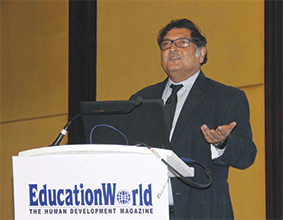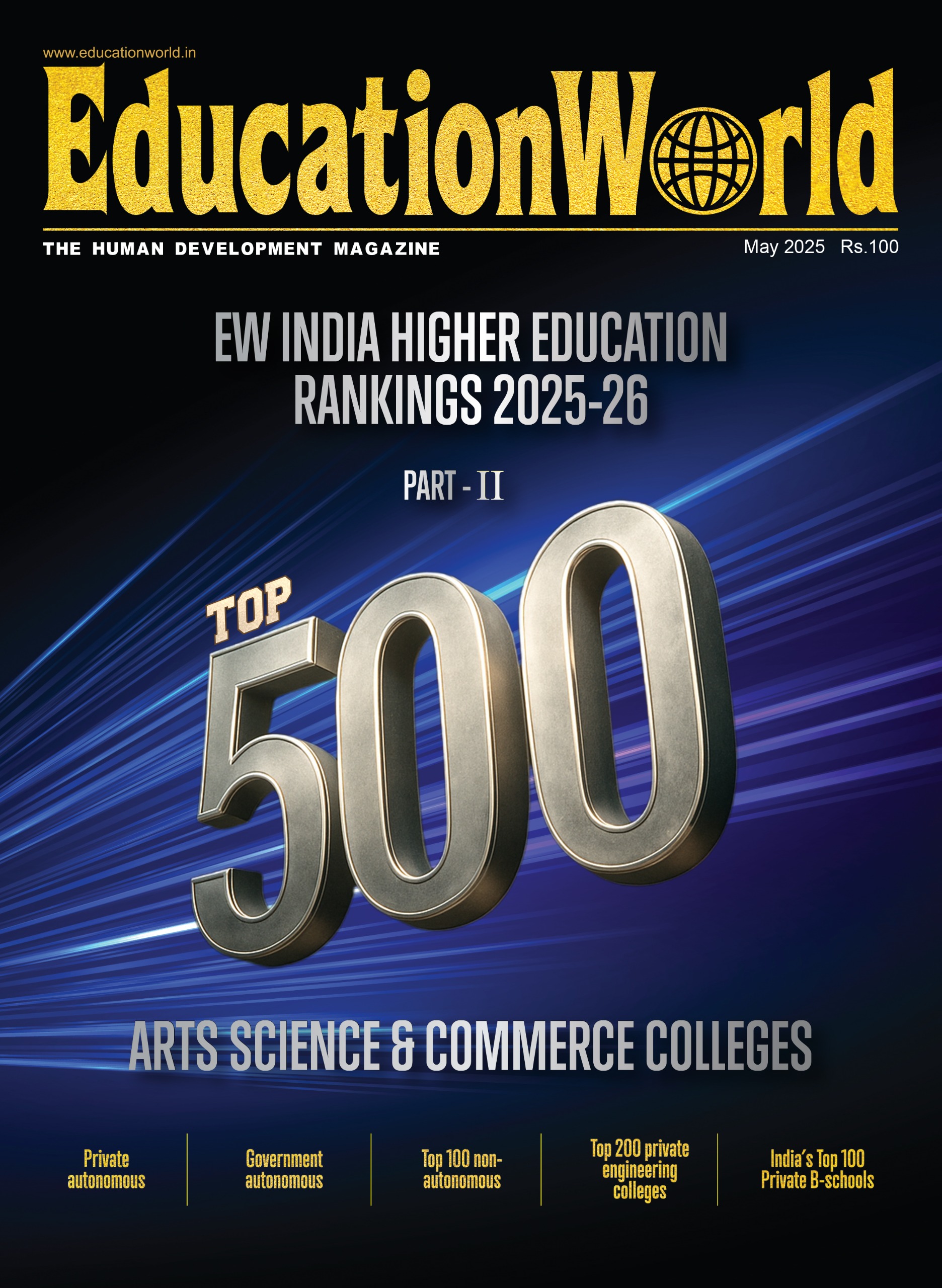Dilip Thakore interviewed Dr. Sugata Mitra, professor of education technology at Newcastle University, after he conducted lecture-workshops in Mumbai and Bangalore under the EducationWorld Professional Development Workshop Series.
 Indian education is in sorry condition. Learning outcomes in primary schools are very poor with class V children unable to read class II texts and 53 percent of children dropping out of school before completion of elementary education. In higher education only two of India’s 800 universities — some with over 150 years vintage — are ranked among the global Top 200. What in your opinion has gone wrong?
Indian education is in sorry condition. Learning outcomes in primary schools are very poor with class V children unable to read class II texts and 53 percent of children dropping out of school before completion of elementary education. In higher education only two of India’s 800 universities — some with over 150 years vintage — are ranked among the global Top 200. What in your opinion has gone wrong?
Indian education was redesigned by the British in the 18th century. Its purpose was to produce people who would be useful for administering British rule in India. At the time, India had already been conquered and ruled by people from the Middle East for over 800 years. No trace of its earlier heritage (before 1000 BCE) was either evident or in public memory. Indians had forgotten what it was like to be free.
British-designed education to produce clerks and factory workers continued after independence. Amazingly, it continues even today. Government schools in particular, go on mindlessly producing 19th century people using 19th century curriculums, 19th century pedagogy and 19th century examination systems. At the end of their schooling, these people enroll in universities. Prof. Dinesh Mohan of IIT-Delhi once described the higher education system as “an ocean of mediocrity”. I don’t need to say more.
A growing number of educationists believe that new digital technologies offer India’s education policy-formulators an opportunity to make up for lost time and opportunities. Do you share this opinion?
‘Technology in education’ is not the answer. Millions are spent buying junk in the name of technology for education. Instead, we need to change our focus from ‘teaching’ to ‘learning’. We need evidence of efficient learning before investing in technology. There are too many people and companies selling ‘solutions’. We need to know how to see through them and focus on the key requirement of Indian education — learning.
Your Hole-in-the-Wall experiment in Kalkaji, Delhi in the 1990s, and subsequently SOLE (self-organised learning environments) and School in the Cloud seem to have vindicated your faith in peer-to-peer and self-learning. Would it be correct to say that you believe that Indian education requires pedagogy rather than technology revolutions?
Yes, 21st century learners learn differently. We need to factor the Internet into our schools and examinations, and set up collaborative learning spaces in schools. I set up such a space in a government school in Kalkaji, New Delhi, three years ago. If you talk to the students there you will see fantastic change.
In India, the greatest resistance to new technologies and pedagogies is from the teachers’ community. How can this problem be addressed?
India’s teacher training progammes are ancient and obsolete. Our teachers seem utterly uninterested in their jobs — with some rare exceptions. The examination system encourages them to be apathetic, to suggest private tuition, and help students cheat in examinations. A change in the examination system will go a long way towards changing all this. Allow the Internet during exams. The system will begin to change…
After winning the $1 million TED Prize in 2013, you have established an education trust. What are its aims and objectives?
I haven’t established any trust. I spent the money on a three-year study of seven ‘Schools in the Cloud’ — five in India and two in the UK. The results of the study will be collated and published later this year.
Despite India grudgingly hosting the world’s largest child population, there seems to be a curious lack of interest in public education. Budgetary allocations, as a percentage of GDP and per capita education spending, are among the lowest worldwide, and there’s minimal debate on education issues. How optimistic are you about the future of Indian education?
The Internet will change Indian education. Not the government. In a few years it will no longer be possible to tell whether a person is consulting the Internet, or not. That will change the concept of ‘knowing’ and knowledge. India will be saved by the future of technology, not by political will.























